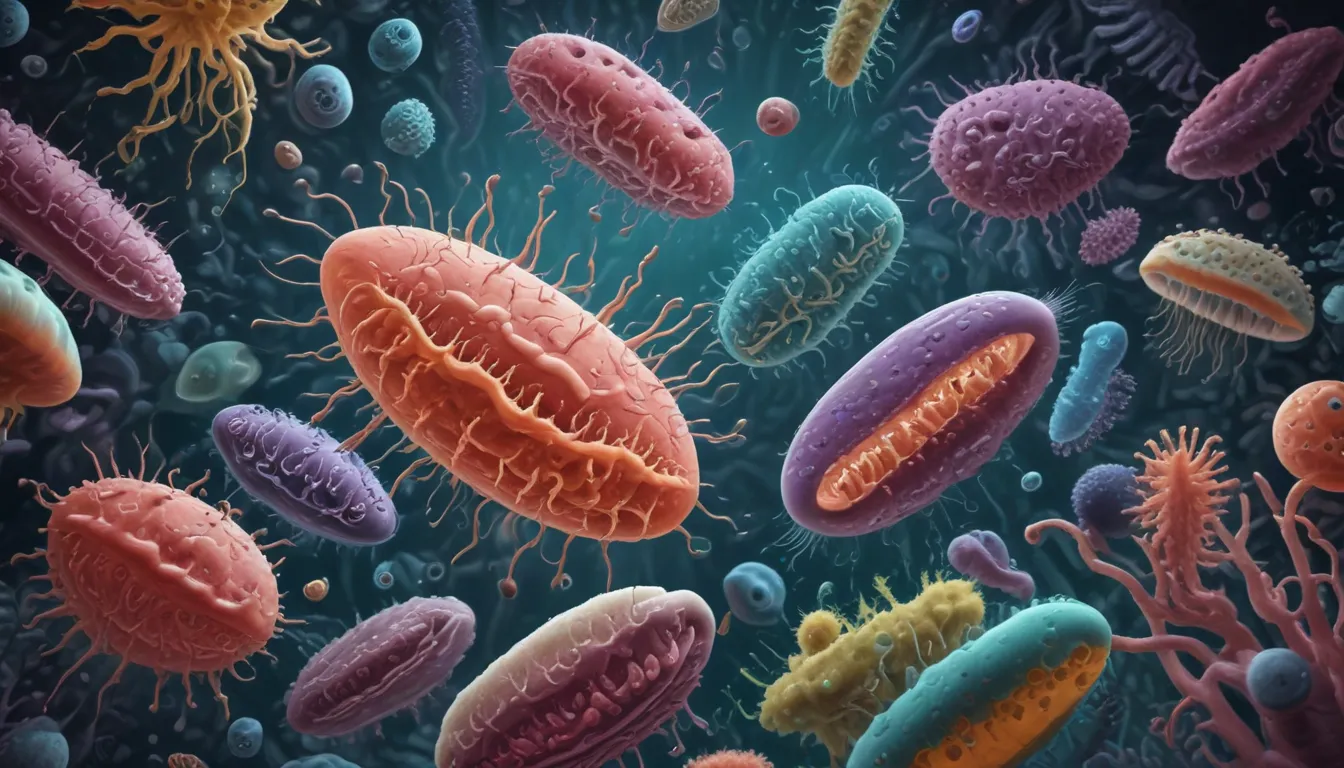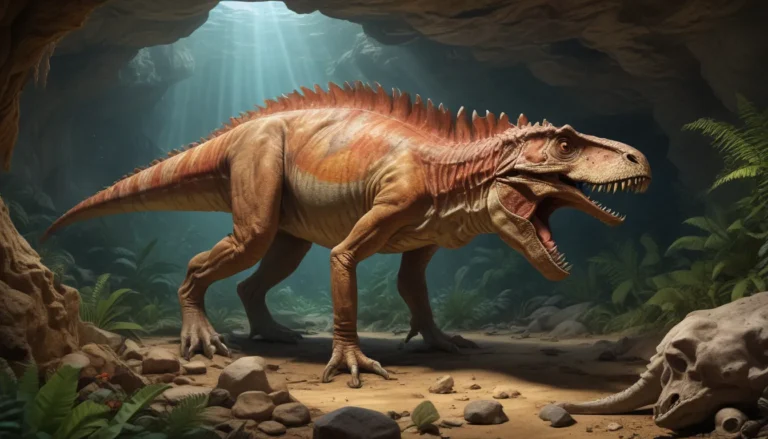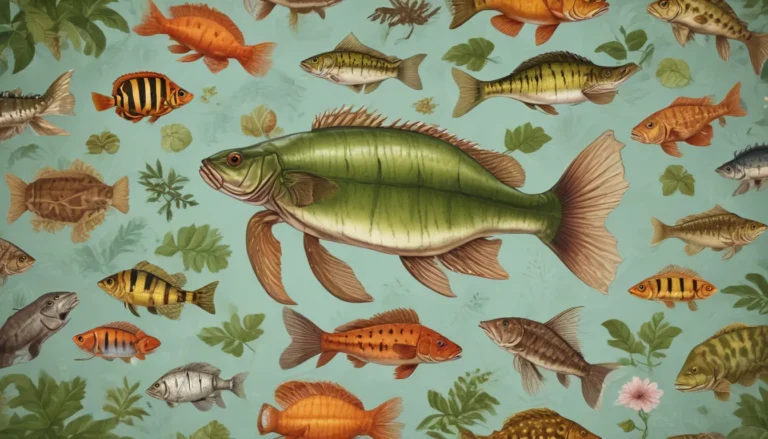A Note About Images: The images used in our articles are for illustration purposes only and may not exactly match the content. They are meant to engage readers, but the text should be relied upon for accurate information.
Welcome to the incredible world of prokaryotes, where microscopic organisms wield immense power and influence over our planet. Prokaryotes, including bacteria and archaea, have been thriving for billions of years, shaping ecosystems, aiding in nutrient cycling, and even contributing to human health. In this article, we will delve into 14 astounding facts about prokaryotes that will leave you in awe of their ingenuity and resilience. Join us on this journey as we uncover the secrets of these fascinating creatures and explore the depths of their remarkable abilities.
Unveiling the Marvels of Prokaryotes
Prokaryotes, the ancient and diverse microorganisms that they are, have captured the curiosity of scientists and researchers for centuries. Let’s unravel some of the most intriguing aspects of these tiny yet mighty beings that continue to astonish us with their capabilities.
1. The Origins of Prokaryotes
Prokaryotes stand as the oldest form of life on Earth, with evidence dating back over 3.5 billion years. These resilient organisms have endured the test of time and remain the foundational building blocks of life as we know it.
2. The Diversity Within Prokaryotes
With an estimated trillions of different species, prokaryotes showcase an incredible diversity that is unparalleled in the microbial world. Each species possesses unique characteristics and adaptations to thrive in various environments.
3. Surviving Against All Odds
Prokaryotes exhibit an exceptional ability to survive in extreme conditions, from scorching hot springs to freezing Arctic tundras. Their resilience allows them to thrive in environments where other life forms would struggle to survive.
4. Guardians of the Ecosystem
Playing a crucial role in the global ecosystem, prokaryotes are vital for nutrient cycling, decomposition, and maintaining the delicate balance of ecosystems worldwide. They are the invisible architects of the natural world.
5. Harnessing the Power of Photosynthesis
Some prokaryotes, such as cyanobacteria, engage in photosynthesis, converting sunlight into energy much like plants. Their contribution to oxygen production on Earth is significant and essential for supporting life.
6. Adapting to Change
Prokaryotes demonstrate mastery in genetic adaptation, swiftly evolving and adapting to ever-changing environments. This adaptability allows them to thrive in the harshest conditions and ensures their survival in diverse habitats.
7. Ubiquitous Presence
From the depths of the ocean to the highest mountaintops, prokaryotes can be found in virtually every habitat on Earth. Their versatility and adaptability enable them to thrive in a wide range of environments.
The Unique Characteristics of Prokaryotes
8. Simplicity in Structure
Prokaryotic cells possess a simple cellular structure, lacking a nucleus and other membrane-bound organelles. Despite their simplicity, they can perform essential functions for life, showcasing the elegance of their design.
9. Rapid Reproduction
Certain prokaryotes have the ability to reproduce quickly through binary fission, dividing into two identical cells every 20 minutes. This rapid reproduction rate allows for population growth and adaptation at an astonishing pace.
10. Impact on Human Health
While many prokaryotes are harmless or beneficial to humans, some can cause diseases such as pneumonia, tuberculosis, and E. coli infections. Understanding the role of these microorganisms in human health is essential for disease prevention and treatment.
11. Pioneers of Antibiotics
Prokaryotes have played a pivotal role in the development of antibiotics, with groundbreaking discoveries such as penicillin revolutionizing medical treatment by combating bacterial infections. Their contribution to medicine is immeasurable.
12. Communicative Abilities
Through a process known as quorum sensing, prokaryotes can communicate with each other and coordinate their behaviors. This phenomenon allows them to act collectively and form complex communities with organized structures.
13. Master Recyclers
Prokaryotes exhibit a remarkable ability to break down various compounds, including pollutants, petroleum, and complex organic molecules. Their role in environmental cleanup and recycling is crucial for maintaining ecological balance.
14. Innovators in Biotechnology
The unique genetic makeup and capabilities of prokaryotes offer promising avenues for biotechnological applications, such as the development of new drugs, biofuels, and other valuable products. Their potential for innovation is boundless.
Unveiling the Wonders of Prokaryotes
Prokaryotes are extraordinary organisms with a profound impact on our world. Their ability to adapt, evolve, and thrive in diverse environments is a testament to their resilience and ingenuity. As we continue to study and learn more about these fascinating creatures, we unlock new possibilities for medical advancements, environmental conservation, and technological innovation.
Delving Deeper into the Microbial Realm
The mysteries of prokaryotes are vast and hold endless discoveries waiting to be unraveled. Explore the intricacies of prokaryotic cells, genetic recombination, and the fascinating relationships between organisms. Continue your journey of discovery and marvel at the adaptations and interactions of these tiny yet powerful life forms that shape our world.
Conclusion
Prokaryotes are the unsung heroes of the microbial world, silently orchestrating the intricate dance of life on Earth. Their astonishing abilities and vital contributions to ecosystems and human health deserve recognition and admiration. As we delve deeper into the realm of prokaryotes, we gain a deeper appreciation for the complexity and beauty of the natural world.
FAQs
What are prokaryotes?
Prokaryotes are unicellular organisms lacking a nucleus and other membrane-bound organelles. They include bacteria and archaea.
How do prokaryotes reproduce?
Prokaryotes reproduce through binary fission, where a single cell duplicates its genetic material and divides into two identical cells.
What role do prokaryotes play in the environment?
Prokaryotes play a crucial role in the environment by decomposing organic matter, fixing nitrogen, and cycling nutrients. They form the foundation of many food chains.
Can prokaryotes survive in extreme conditions?
Yes, prokaryotes are known for their ability to survive in extreme conditions, including high temperatures, pressures, acidic environments, and even outer space.
How do prokaryotes exchange genetic material?
Prokaryotes can transfer genetic material through processes like conjugation, transformation, and transduction, enabling the exchange of beneficial traits.
Explore the Marvels of Prokaryotes
Embark on a journey of discovery and exploration into the incredible world of prokaryotes. Uncover the secrets of these extraordinary microorganisms and witness the wonders of their evolution and adaptation. Join us in celebrating the resilience, diversity, and ingenuity of prokaryotes as we marvel at their remarkable contributions to the fabric of life on Earth.
Your Feedback Matters
Your feedback is essential to us as we strive to provide accurate and engaging content that enriches your knowledge and understanding. Our commitment to quality and authenticity ensures that each fact is thoroughly reviewed and verified by our dedicated editors. Trust in our dedication to delivering trustworthy and valuable information as you continue to explore and learn with us.






